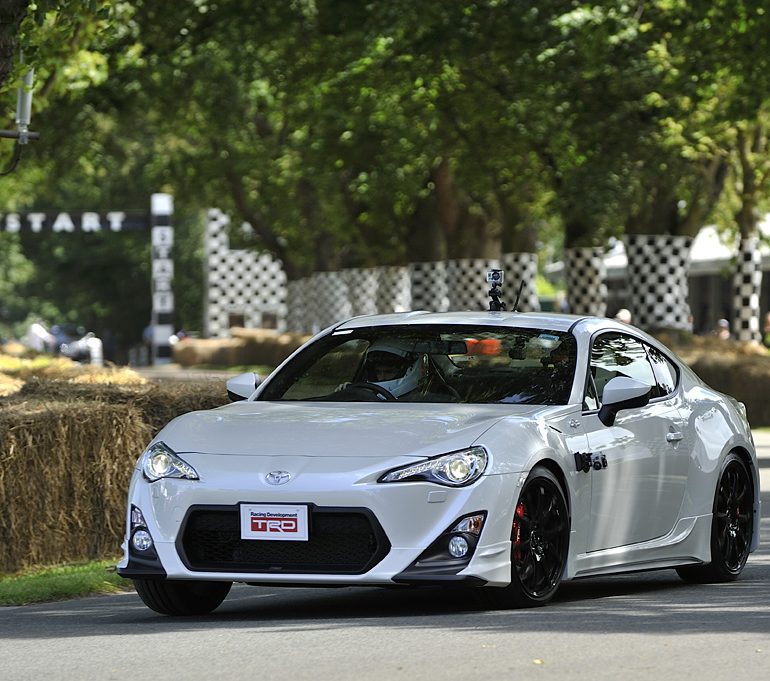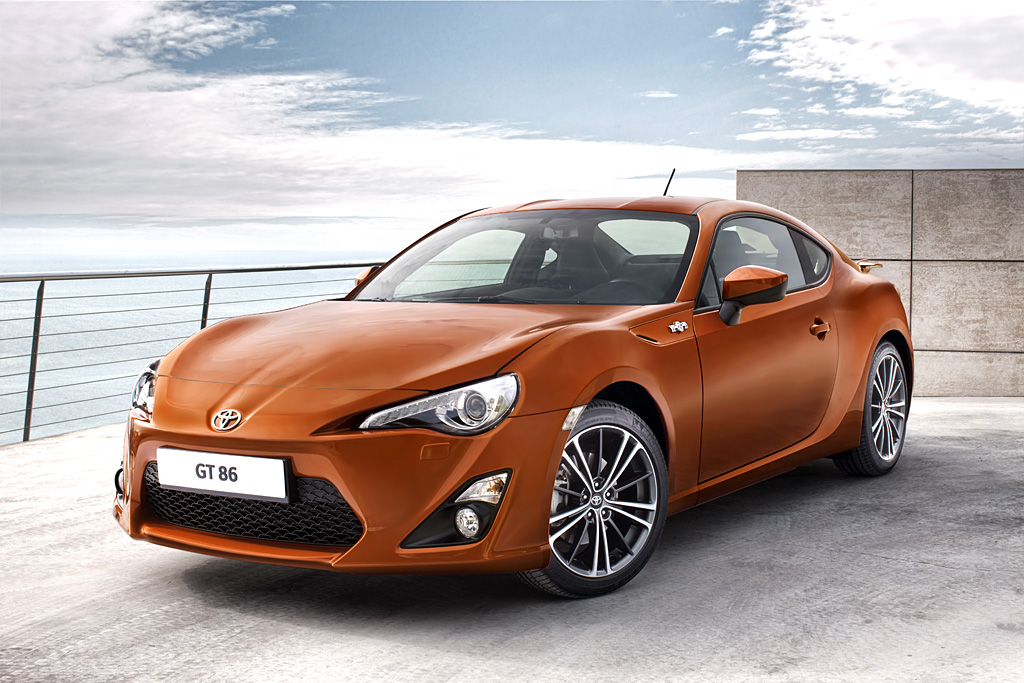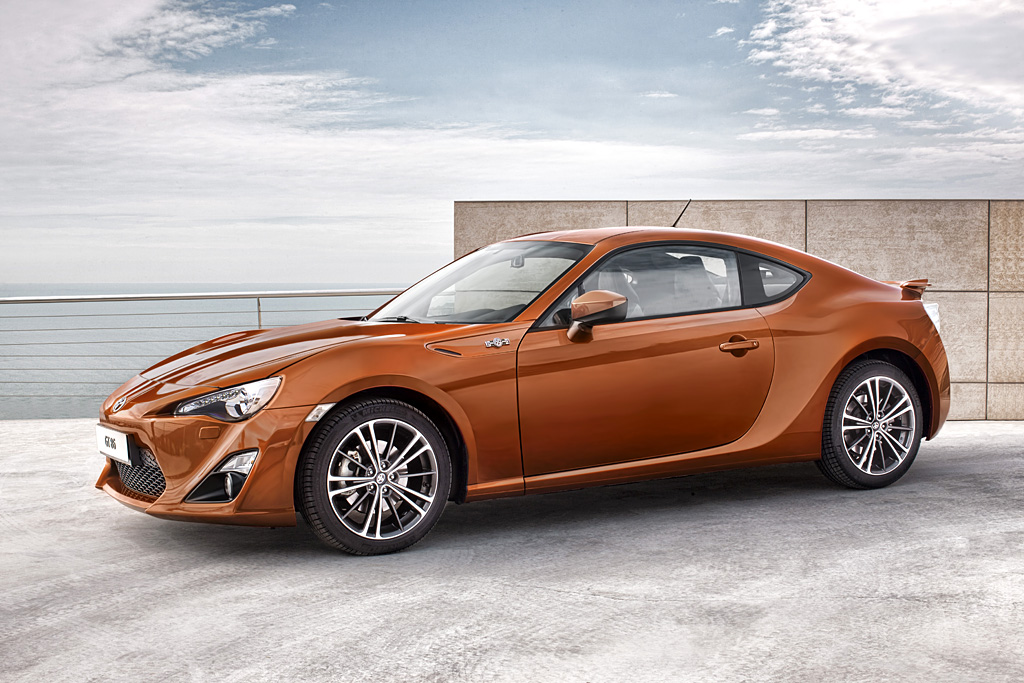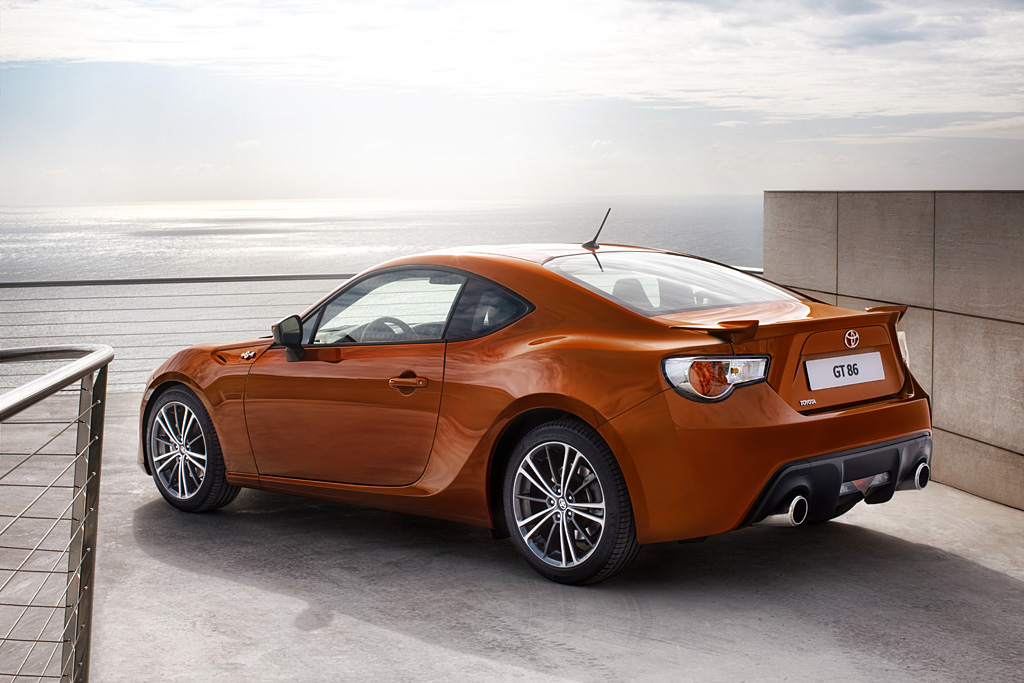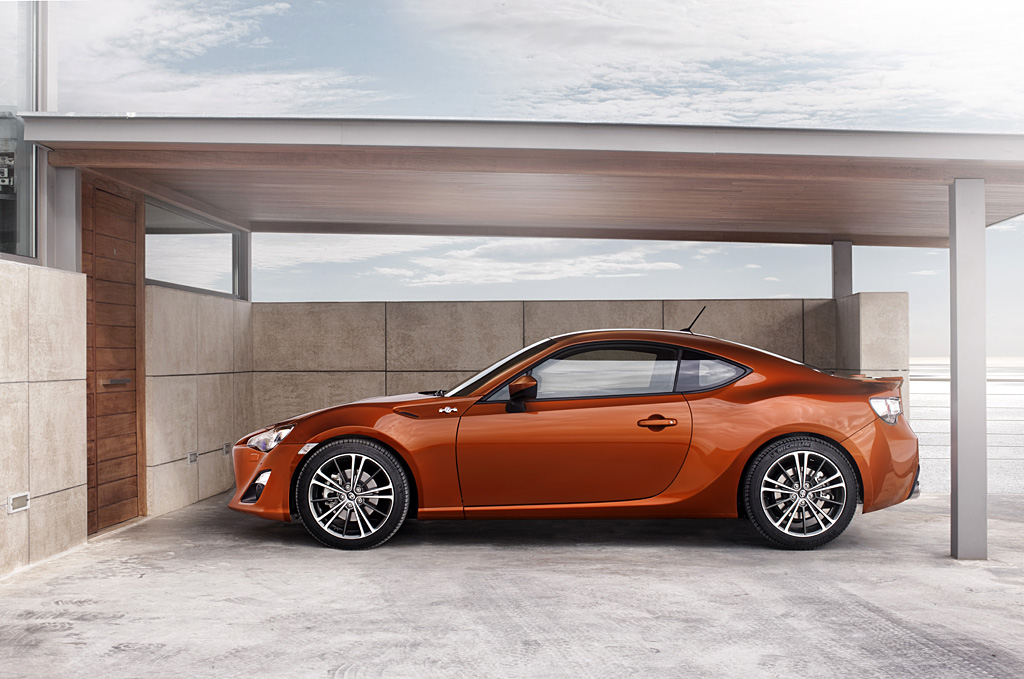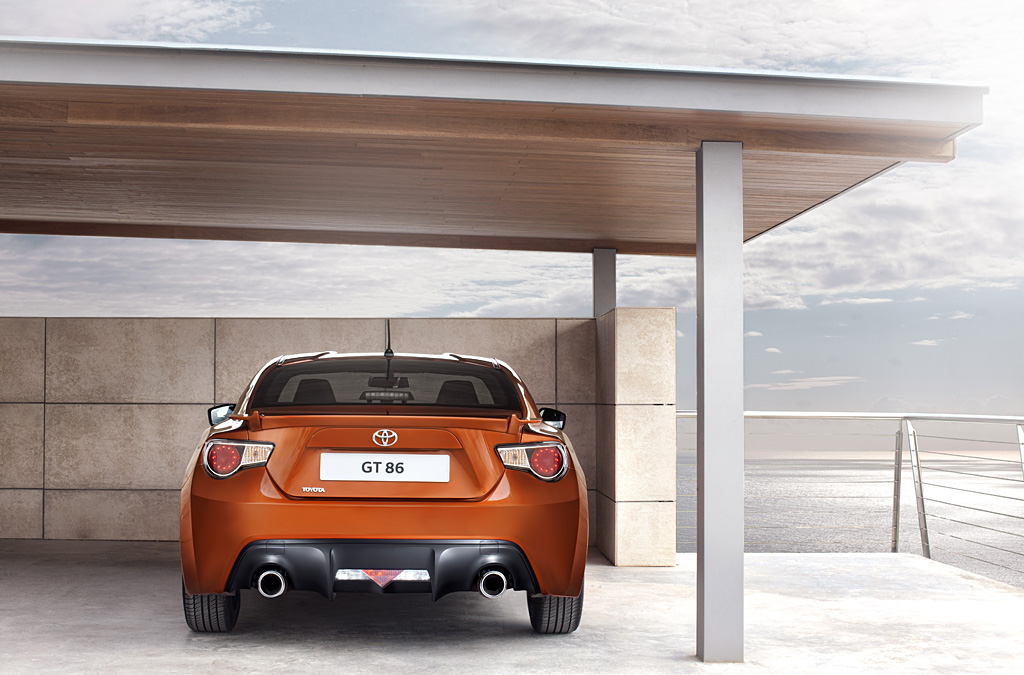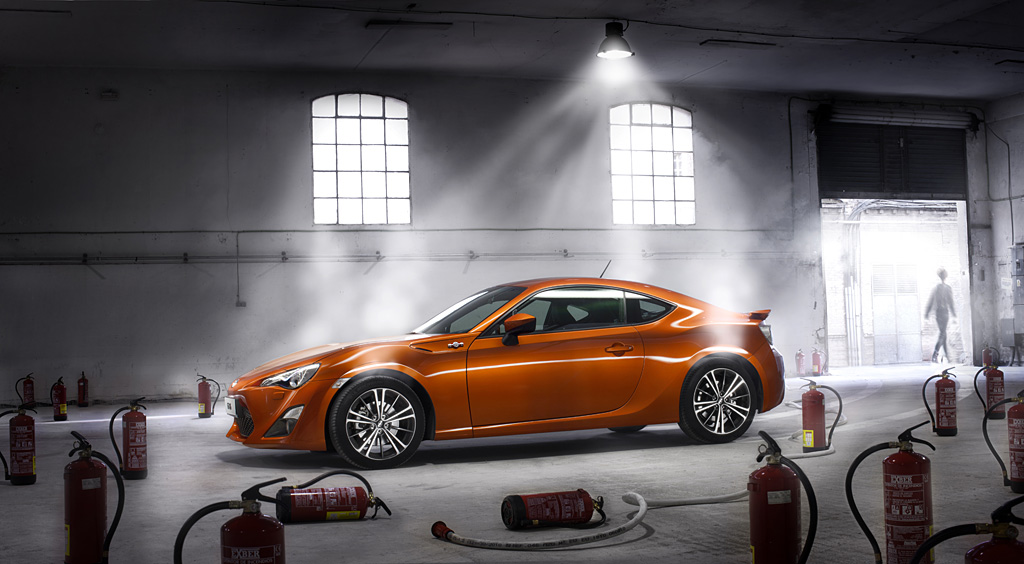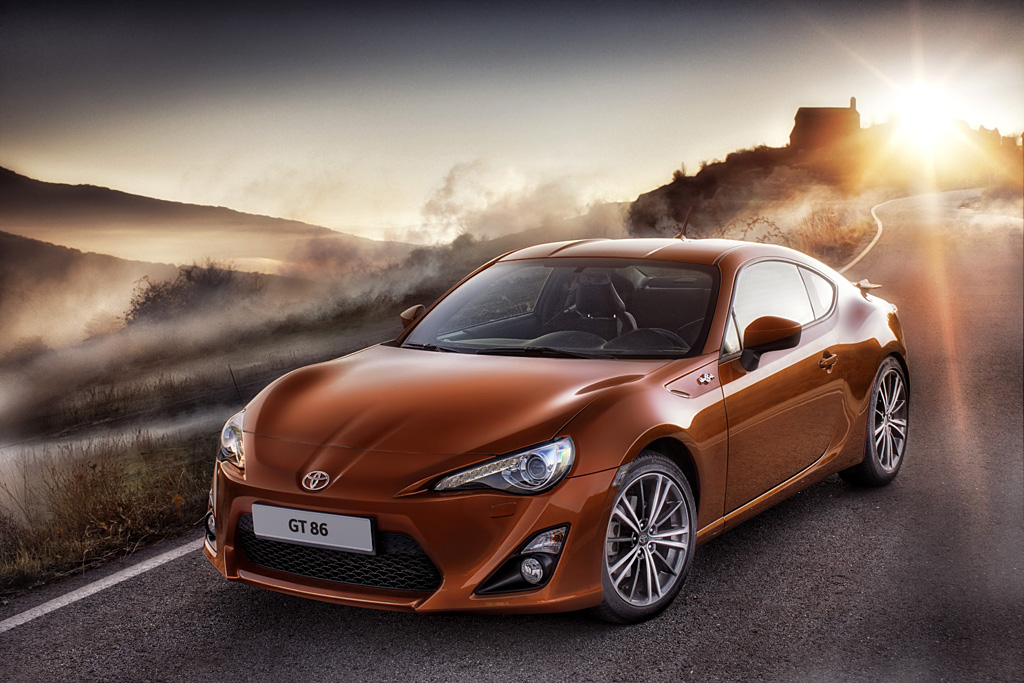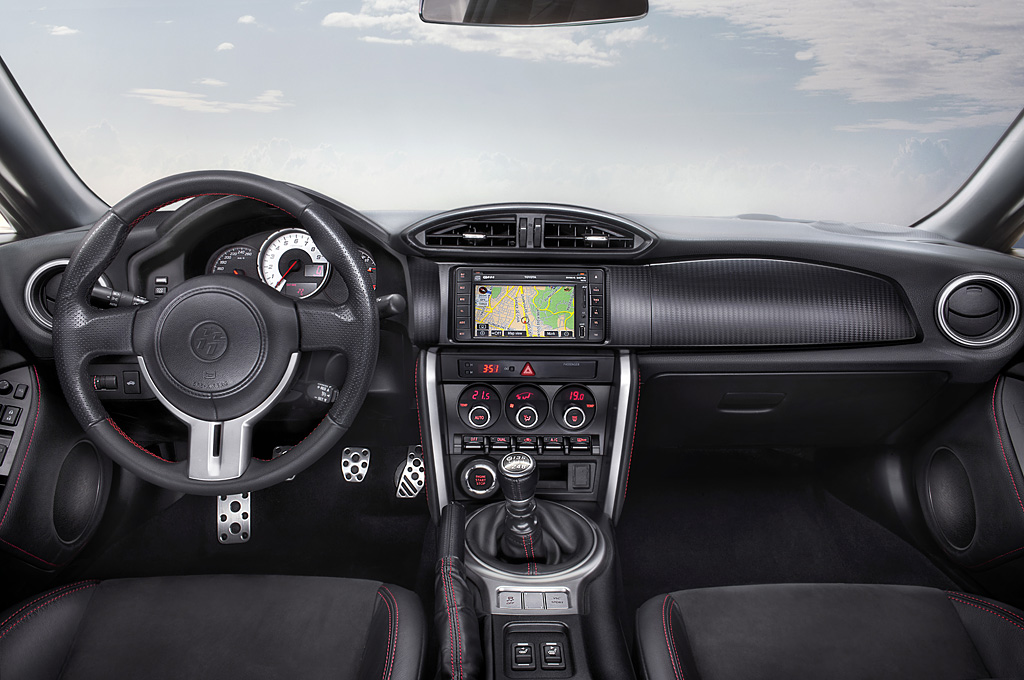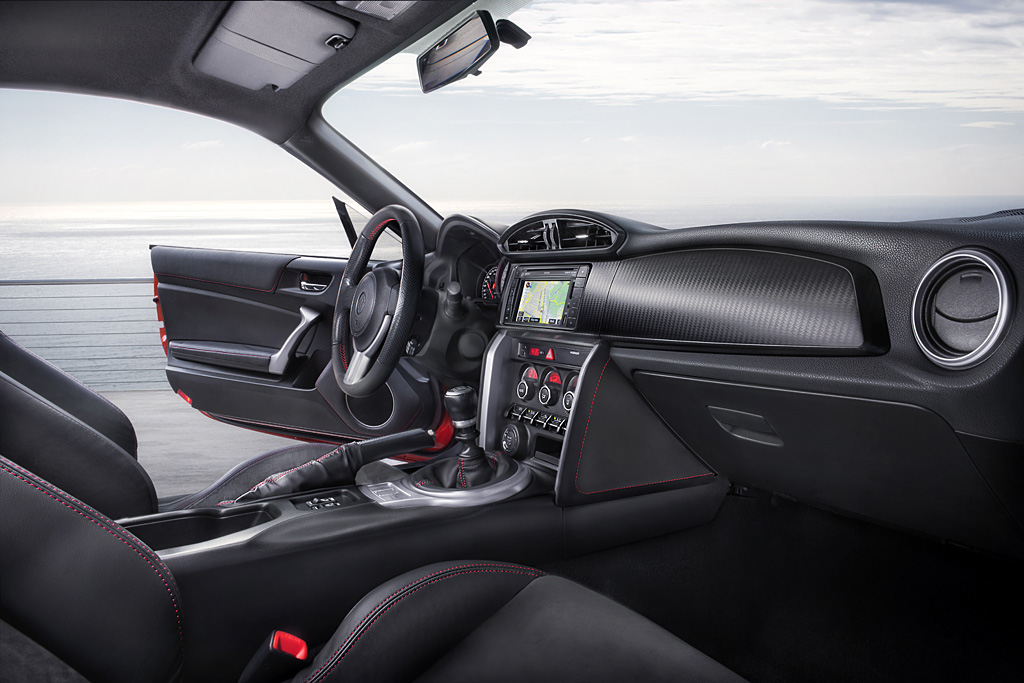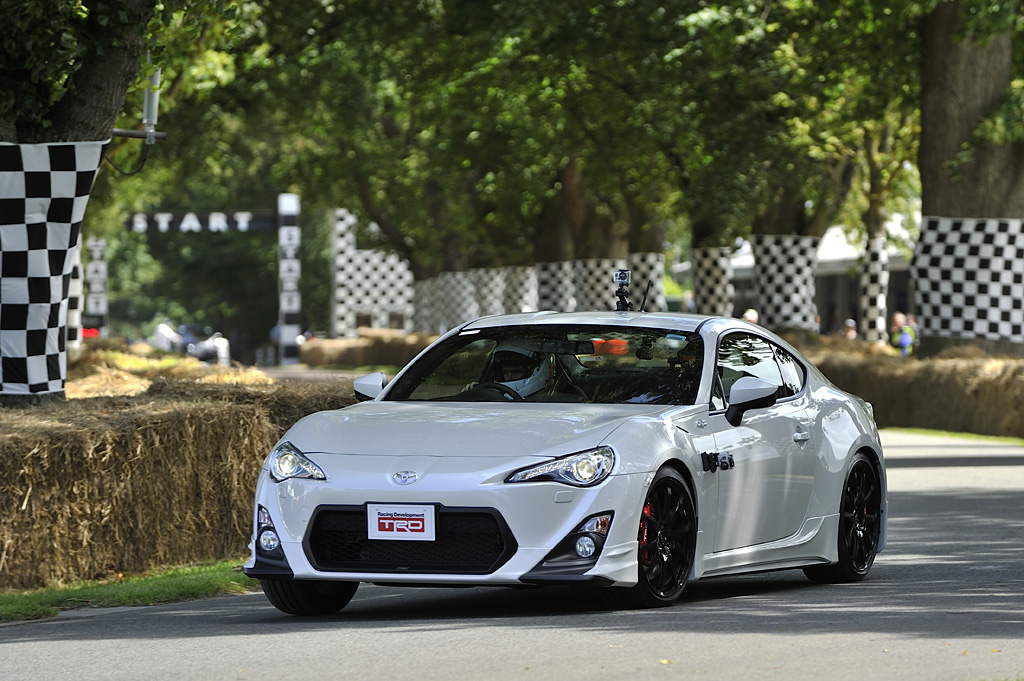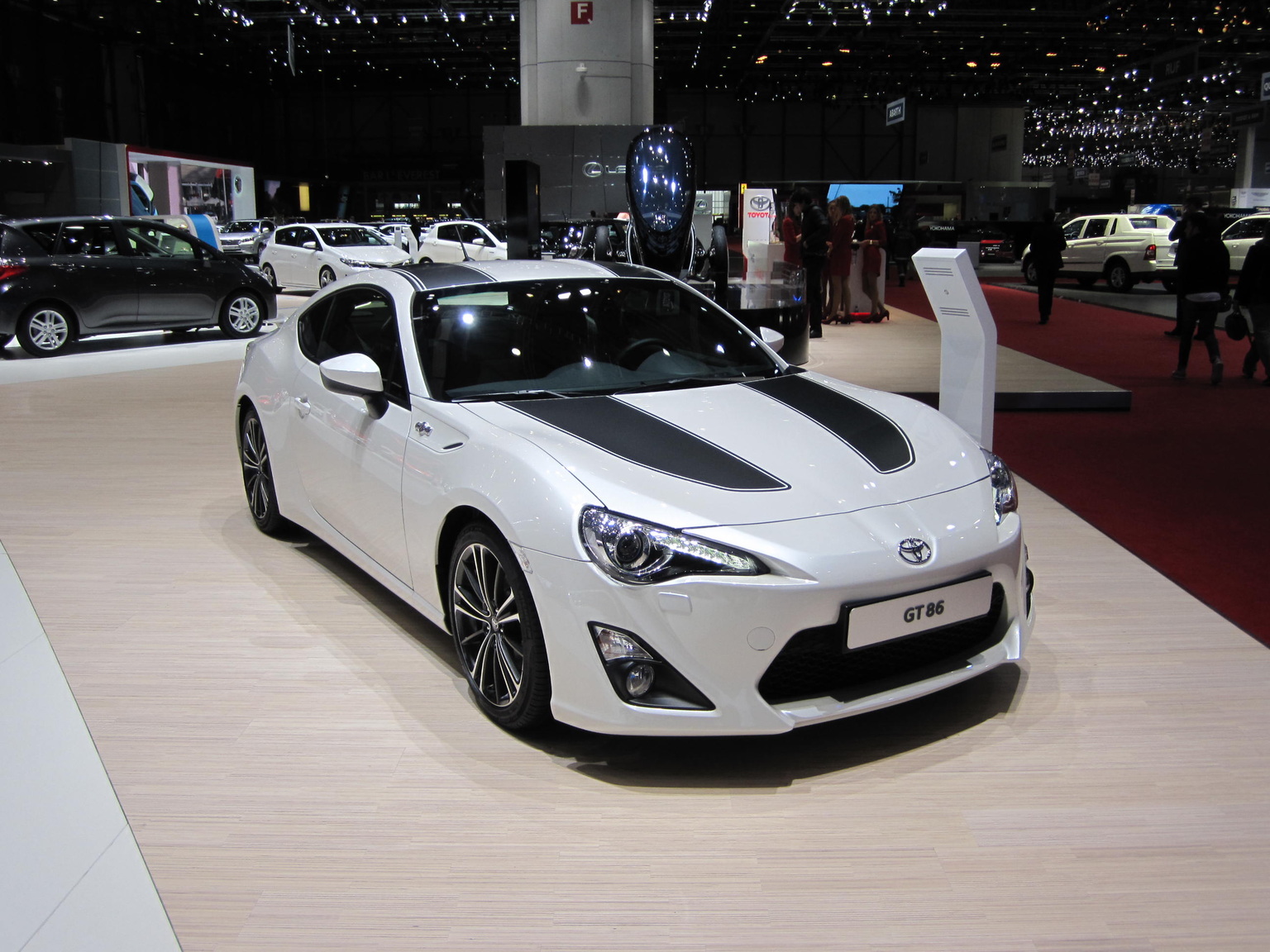2012 Toyota GT 86
After a keenly monitored gestation period, Toyota’s eagerly awaited, compact 2+2 sports car, the GT 86, makes its world debut on November 30th at this year’s Tokyo Motor Show. On sale throughout Europe in the summer of 2012, the GT 86 is an entirely driver-oriented vehicle. Conceived to focus specifically on the core attributes of the classic sports car experience, it gives form to the intrinsic joy of driving through precise, instantaneous response to even the smallest throttle or steering inputs, for those who regard driving as a passion rather than a necessity.
With a low, highly aerodynamic bodyshell stretched tight over the engineering hard points, the new GT 86 is based on an entirely new platform. Shunning a heavy, large displacement powertrain for its performance, the GT 86 returns to Toyota’s sporting roots with the world’s only combination of a compact, front-mounted, free-revving, horizontally opposed ‘boxer’ petrol engine and rear-wheel drive.
This unique powertrain format combines with the world’s most compact four-seat design, light weight, low inertia and a low centre of gravity for the best possible power-to-weight ratio. These attributes award the GT 86 lively, accessible performance, highly engaging, readily exploitable dynamic abilities with minimal electronic intrusion, and maximum driving pleasure.
Packaged to Deliver the Ultimate in Sports Driving Enjoyment
4,240 mm long, only 1,285 mm high and with a wheelbase of 2,570 mm, the new GT 86 is the world’s most compact four-seater sports car.
Both the powertrain and driving position have been set as low and as far back as possible to optimise balance, giving the GT 86 near-perfect, 53:47 weight distribution. The flat-four format of the front-mounted boxer engine combines with the lowest driver hip-point of any Toyota production vehicle to give the GT 86 an ultra-low centre of gravity of only 460 mm.
The GT 86 maximises the benefits of its minimal mass, supercar-rivalling lack of inertia and ultra-low centre of gravity with front MacPherson strut and rear double wishbone suspension, and large powerful ventilated disc brakes to both front and rear 17” wheels, allowing drivers to fully exploit the purity of the new Toyota sports car’s outstandingly nimble handling, dynamic agility and cornering poise.
World’s First Horizontally Opposed D-4S Engine
The GT 86’s 2.0 litre, naturally-aspirated petrol engine is the result of a joint development between Subaru and Toyota, bringing together their technical know-how and mutual passion for sports cars. To Subaru’s newly developed, horizontally opposed, 1998cc, four-cylinder boxer engine, Toyota has added its D-4S technology. With separate twin injectors for both direct and port injection, and a high compression ratio of 12.5:1, D-4S increases power and torque over a wide range of engine speeds without sacrificing fuel efficiency and environmental performance.
With a namesake 86 mm x 86 mm bore and stroke, the new engine develops 200 DIN hp at 7000 rpm and maximum torque of 205 Nm at 6600 rpm, giving the GT 86 brisk, engaging performance.
The flat-four engine may be mated to either a six-speed manual or six-speed automatic transmission. The manual transmission will offer quick, precise shifting via the highly engaging action of a tactile, short-throw lever, whilst the automatic transmission will be controlled by sporting, steering wheel-mounted paddle shifts.
Power is distributed to the rear wheels via a limited slip differential, optimising traction and grip under all driving conditions. And the GT 86’s ABS and switchable VSC safety systems have been specifically tuned to combine dynamic stability at the limit of the vehicle’s performance envelope with minimal electronic intrusion on the purity of the driving experience.
Evocative Design Combining Iconic Styling with Functional Beauty
Designed under the ‘Neo Functionalism’ concept, the GT 86 combines the technical constraints of the most compact dimensions possible, a low centre of gravity and excellent, F1 technology-inspired aerodynamic performance with evocative, sweeping styling recalling the heritage of past Toyota sports cars.
The bold, simple yet iconic styling incorporates two key pillars of a new Toyota design language: Under Priority frontal design, which places the emphasis on an enlarged lower grille, focusing attention on the lower part of the car for a distinctive, more assertive appearance, and a Keen Look approach for clear, intelligent and expressive styling.
The new design language is enhanced by bold ‘Scorpion’ styling to the lower grille, giving the GT 86 an even more aggressive, sporting appearance. Further sporting details include purpose made 17” alloy wheels, a rear spoiler, twin rear exhausts and the ‘86’ piston logo, which highlights the car’s unique, front boxer engine rear-wheel drive powertrain format.
On board, the entirely driver-focused cockpit re-evaluates the essence of sports car driving through the detailed examination of the ergonomics and functionality of every element with which the driver interacts, allowing the GT 86 to be driven as if it were a natural extension of the driver’s body.
The seatbacks and cushion surfaces are designed to provide optimum support under acceleration g-forces from the front, back and sides. In addition, the shape of the front seat is designed not only for comfort, but also to prevent elbows from interfering with gearshift operation.
The steering wheel has a diameter of just 365 mm, the smallest yet fitted to a Toyota, and its buckskin finish has been developed through exhaustive feedback from test drivers to offer enhanced steering performance and maximum grip under all cockpit conditions.
Built around the large tachometer, the three meter instrument cluster has been designed with particular attention paid to display placement, markings and typeface, ensuring optimum, at-a-glance visibility and readability during sports driving. The dedicated driving focus of the cockpit is further reinforced by carbon effect trim, a sporting, all-black roof lining, red upholstery stitching, aviation-style rocker switchgear and lightweight aluminium pedals.
A 50 Year Heritage of Front-Engined, Rear-Wheel Drive Sports Cars
Though the GT 86 launches as the world’s only front-mounted horizontally opposed engine and rear-wheel drive package, it cannot claim to be the first. That honour goes to Toyota’s two-cylinder boxer engined Sports 800, which the company began developing in 1962. Since then, Toyota has created a long history of producing exciting, driver-focused, front-engined rear-wheel drive sports cars that have proved as popular with the public as they have been successful in competition. The beautiful 2000 GT, a 2.0 litre straight-six-powered coupe first displayed at the 1965 Tokyo Motor Show, helped establish the company’s global reputation as a sports car manufacturer.
Launched in 1971, the first Celicas incorporated rear-wheel drive powertrains, and were praised by enthusiasts for their agility. All four Supra generations boasted straight-six engines and rear-wheel drive. And, first appearing in 1984, the MR2 gained a well-deserved reputation as one of the best handling sports cars of all time. However, with its reputation for delivering pure excitement and embodying the fundamental joy of driving, the Corolla Levin AE86 is the inspiration behind Toyota’s GT 86.
The Corolla Levin AE86’s front engined, rear-wheel drive powertrain, compact dimensions, light weight, impeccable balance and superior power-to-weight ratio made it the must-have choice for rallying and circuit driving throughout its 1983-1987 production life.
A genuinely lightweight machine which offers the intimacy and involvement of a car that can be driven as if it were an extension of the driver’s body, the GT 86 perfectly recaptures the exhilarating spirit of the last Corolla Levin AE 86 and, with numerous customisable parts, shares its aim to be an affordable car that evolves with its owner.
In Detail
| tags | entry, gt86 |
| submitted by | admin |
| type | Series Production Car |
| built at | Japan |
| engineers | Tetsuya Tada |
| engine | D-4S Boxer-4 |
| valvetrain | DOHC, 4 Valves per Cyl |
| fuel feed | Direct Injection |
| displacement | 1998 cc / 121.93 in³ |
| bore | 86 mm / 3.4 in |
| stroke | 86 mm / 3.4 in |
| compression | 12.5:1 |
| power | 147 kw / 197.1 bhp @ 7000 rpm |
| specific output | 98.65 bhp per litre |
| torque | 205 nm / 151.2 ft lbs @ 6600 rpm |
| body / frame | Unitary Steel Monocoque |
| driven wheels | RWD |
| front tires | 215/40R18 |
| rear tires | 225/40R18 |
| front brakes | Ventilated Discs |
| rear brakes | Ventilated Discs |
| f suspension | MacPherson Struts |
| r suspension | Double Wishbones |
| weight distro | 53 % / 47 % |
| wheelbase | 2570 mm / 101.2 in |
| front track | 1520 mm / 59.8 in |
| rear track | 1540 mm / 60.6 in |
| length | 4240 mm / 166.9 in |
| width | 1775 mm / 69.9 in |
| height | 1300 mm / 51.2 in |
| transmission | 6-Speed Manual or Automatic |
| fuel capacity | 50 litres or 13.20 gal. |


